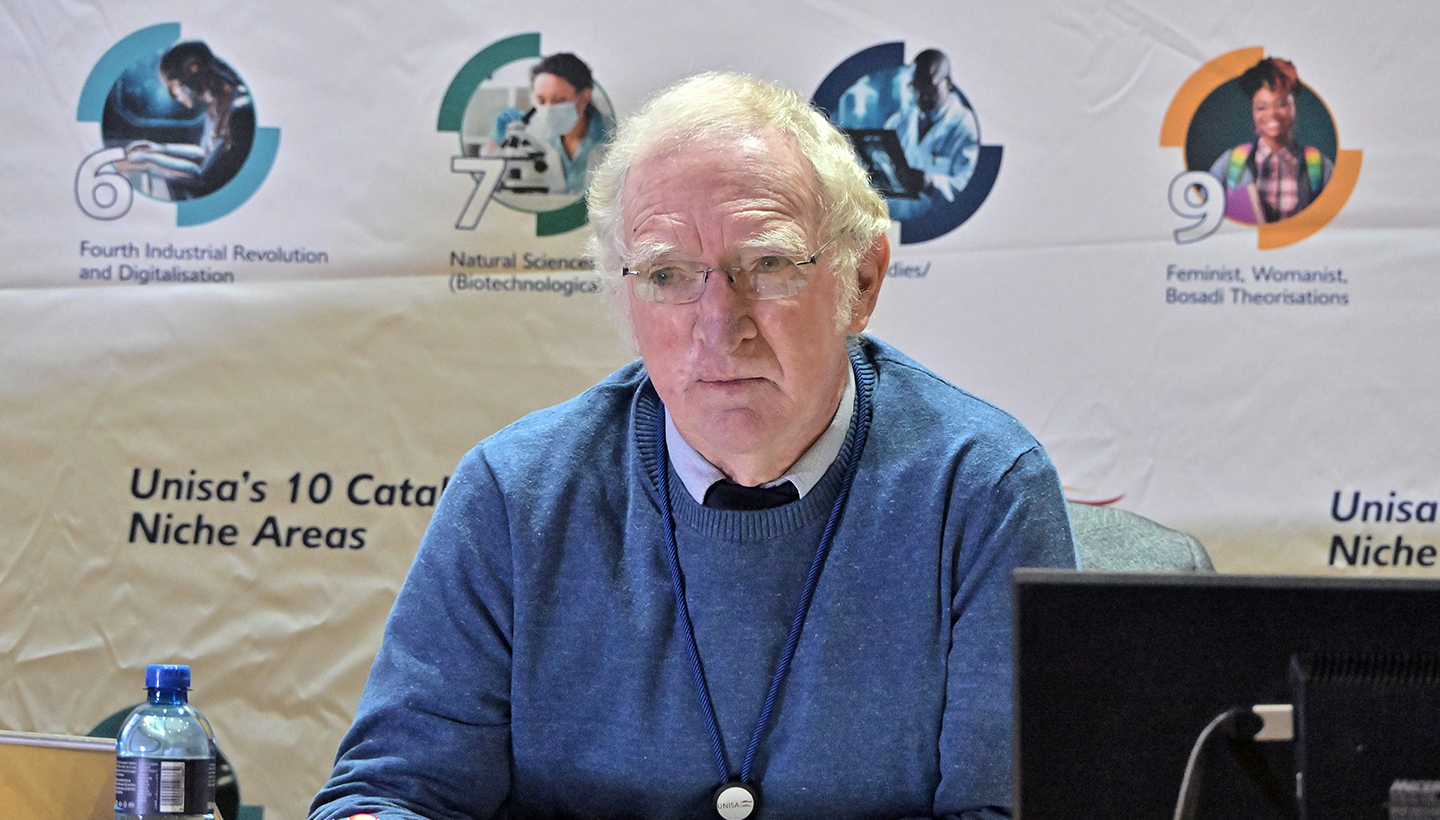News & Events
Aviation law expert calls for independent entity for transport accident investigations in South Africa

Dr Brian Suckling, Unisa graduate and retired pilot
“South Africa urgently needs to create a separate, independent entity to investigate safety incidents and accidents across all transportation modes,” said Dr Brian Suckling, Unisa graduate and retired pilot. Focusing on Catalytic Niche Area 2: Aviation and Aeronautical Studies, the statement was also part of his thesis conclusions, which he shared at the recently held Unisa’s Catalytic Niche Area Research Symposium.
Introduced by Advocate Konanani Raligilia of Unisa’s College of Law (CLAW) as having obtained by his Doctor of Laws earlier this year and possessing over five decades of experience in the aviation field, Suckling shared that while the country has not suffered major aircraft incidents for a while, major road accidents are catastrophic and need to be addressed.
Keep regulation and investigation separate
One entity to regulate and another to investigate – this is the golden standard internationally in the transportation space. In international aviation specifically – governed by the Chicago Convention, which South Africa is a signatory, member countries are required to ensure that aircraft incidents and accident investigation is independent of government agencies, financial interests and other entities with vested interests.
In South Africa, however, the Aircraft Incident and Accident Investigation Division is part of the South African Civil Aviation Authority (SACAA). This is despite the country’s Civil Aviation Act clarifying that there must be an independent flight safety investigation bureau.
Suckling said that he had begun looking into the issue of independence in aviation accident investigation after a Cessna S550 aircraft crashed into the Outeniqua Mountains in the Western Cape in 2020, killing three occupants – all employees of SACAA. “When I saw the accident citation and investigation, it suggested to me that the independence required might not have been present,” he said.
His PhD research into the separation of oversight and investigation extended beyond South Africa and included five key international jurisdictions, namely: Australia, Canada, New Zealand, the United Kingdom and the United States. Not only did these five countries have fully independent investigation entities, but they also spanned the spectrum of air, road, rail and maritime transportation. This research also led him to recommend that South Africa should also establish an independent investigation entity across its transportation modes.
Turning to the broader African continent, Suckling, who flew Mirage jets for the South African Airforce and was a pilot for the South African Airways for 40 years, said aviation oversight in Africa was inconsistent, ranging from ’brilliant to absent’.
Collective action to improve African aviation safety
Compliance for aviation infrastructure is as low as 35% in Libya, rising to 60% in Algeria and 73% in Namibia to a high of 91.59% in Ethiopia, followed by 92.56% in South Africa. The global compliance average is at 67%.
“We need to improve cross-border collaboration in African aviation safety,” remarked Suckling. “South Africa should contribute to a collective effort to improve aircraft safety on the continent.” He further suggested for Unisa to be a role-player in this process, and further discussions between him and CLAW are ongoing, particularly with Professor Angelo Dube, Unisa’s Acting Director of the School of Law and his former PhD supervisor.
Reiterating his call for collective action to improve African aviation safety, Suckling affirmed that it is his duty to be part of the solution. “I did a doctorate. So what? What do I do now?” For him, the answer is to support Unisa and harness the energies and expertise of people around him.
Additionally, Suckling said: “Unisa is an amazing place. I commend it for being wise and bold by establishing the 10 Catalytic Niche Areas.”
He further urged the symposium’s delegates to support positive action for change. He concluded: If nothing changes, lead the change.”
*By Clairwyn Rapley, Research Support Directorate
Publish date: 2025-08-11 00:00:00.0

